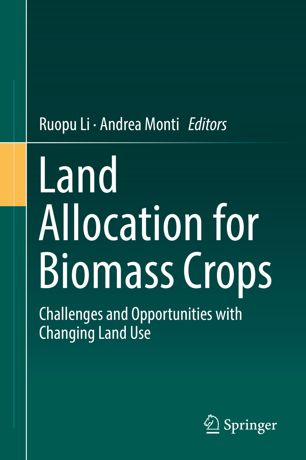

Most ebook files are in PDF format, so you can easily read them using various software such as Foxit Reader or directly on the Google Chrome browser.
Some ebook files are released by publishers in other formats such as .awz, .mobi, .epub, .fb2, etc. You may need to install specific software to read these formats on mobile/PC, such as Calibre.
Please read the tutorial at this link: https://ebookbell.com/faq
We offer FREE conversion to the popular formats you request; however, this may take some time. Therefore, right after payment, please email us, and we will try to provide the service as quickly as possible.
For some exceptional file formats or broken links (if any), please refrain from opening any disputes. Instead, email us first, and we will try to assist within a maximum of 6 hours.
EbookBell Team

5.0
68 reviewsThis edited volume establishes a forum for international experts to explore cutting-edge questions associated with the land use and biomass production. Topics include ‘do we have enough land, either primary or marginal, to accommodate future production of biomass?’, ‘how are farming decisions made in response to biomass incentives?’, ‘is the current bio-mass production socially, economically and environmentally sustainable?’, and ‘what are the main constraints currently limiting biofuel deployment?’
The expansion of biomass production is often at the cost of reduced land availability for food production and losses of areas with ecological functions such as forests and wetlands. This process often involves complex interplay of physical dynamics and human systems that are driven by numerous geographic and socio-economic factors at different scales. Thus, the state-of-the-art research on the land use issues surrounding the biomass production and its environmental impacts is important for informed land management decision making. This book will be of great use to researchers in land use management and biomass-based renewable energy, as well as practitioners.